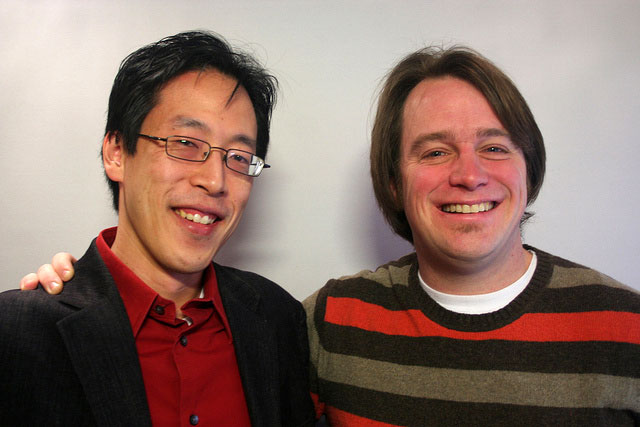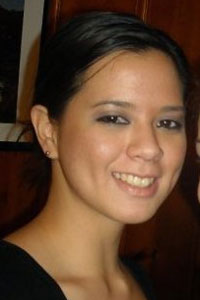StoryCorps: Meningitis almost killed me at 18 — instead, it gave my life purpose
By Wade Kwon
Wade Kwon, left, with Sean Kelley
Sometimes, the story of the worst thing in your life is meant to be shared. In my case, with the Library of Congress and the local college library.
 In January 2011, I talked about my near-death experience in the summer before starting college. My friend Sean Kelley came along for my StoryCorps session in Birmingham. The New York-based nonprofit organization collects audio stories from across the nation, all archived in the Library of Congress, and sometimes broadcast on NPR.
In January 2011, I talked about my near-death experience in the summer before starting college. My friend Sean Kelley came along for my StoryCorps session in Birmingham. The New York-based nonprofit organization collects audio stories from across the nation, all archived in the Library of Congress, and sometimes broadcast on NPR.
Several local StoryCorps participants’ segments aired on WBHM (90.3 FM) in 2011.
My recorded story has not been publicly available in any format until now.
My friend Kathleen McAlister (@KatMcAlister), at left, created a two-and-a-half-minute version of my story. The UAB senior completed the assignment as part of a digital communications course in Community Ethnography.
Kat plans to graduate in December with bachelor’s degrees in psychology and communications.
•
Audio: Wade Kwon explains how contracting meningitis at age 18 changed his life.
•
I interviewed Kat about this project by email.
What was the assignment?
One of of projects was to select a StoryCorps interview from UAB’s archive, transcribe it and edit a 2- to 3-minute piece.
Did you pick which interview to edit, or was it assigned to you?
We each chose one interview. I chose yours because I’d seen you around Sidewalk [film festival] and such for years. (I’ve done everything at Sidewalk: Volunteer, committee head, intern, screening committee, filmmaker.)
Where are the interviews stored? How can the public access them?
I do believe (UAB’s) Sterne (Library) is keeping an archive of the StoryCorps interviews. I’m not sure if it’s only interviews recorded when StoryCorps came to UAB’s campus or if it’s any StoryCorps interview from Birmingham. There are other oral histories archived there as well.
I know the other interviews we conducted within the community this semester will be archived there, but I don’t know the what else the archive covers. Now that the semester is over, I have time to browse things like this!
I know the UAB community can access the archive at Sterne in person and to some degree via the network. I am not positive about public access.
What did you get out of the assignment?
Ha ha, well, I think I may have learned a thing or two to keep in mind if I’m ever being interviewed: avoiding “tsk” noises, leaving pauses after sentences for easy editing.
I did appreciate the detail and visuals I was able to get from the style of the interview. By having a close friend interview you about the event, I feel that you were able to cover more aspects of it than if you were merely recounting the experience or if it was an interview by a journalist you didn’t know.
Incorporating media into documenting history is going to be a fantastic move.
- Rough cut (4 min.) | the first 5 minutes of the interview
- My Birmingham Post-Herald column from 2000 on the life-changing experience
- Other StoryCorps recordings edited for class
About this entry
- Post:
- StoryCorps: Meningitis almost killed me at 18 — instead, it gave my life purpose
- Published:
- 05.10.12 | 7.00 am
- Share:
- Next post:
- Wade’s weekly Twitter log for 2012-05-13
- Previous post:
- Wade’s weekly Twitter log for 2012-05-06



2 yips
Jump to comment form | comments rss [?] | trackback uri [?]